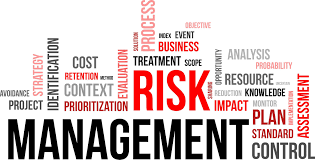


When It Comes to the Pandemic, Scared Is Good
Written by Peter Sandman, this was written at the request of the Sunday Times of London for its March 15, 2020 edition – but not published.
Nearly every journalist who contacts me about the COVID-19 coronavirus pandemic wants to talk about panic. I usually ask the reporter, “Do you know anyone personally who’s panicking?” The answer is always no.
Panic is doing something harmful to yourself or others that you would never do if you were thinking straight, but you can’t help yourself because of out-of-control emotions. We see it in old horror movies: screaming crowds stampeding through the streets, hands waving in the air. Customers in a queue at Tesco, loading up on pandemic supplies, are not panicking. Yet some officials call that “panic-buying” – waiting patiently in line!
If officials keep dumbing down “panic” so it just means anxiously taking precautions against something scary, fine. But then they shouldn’t suddenly revert to the real definition and warn people that “this isn’t a time to panic” (when is?) or, worse yet, withhold upsetting truths out of fear that people will panic.
In crisis situations, true panic is rare. Most documented mass panics happen in places like nightclubs and soccer stadiums – places with a lot of alcohol. Sober people often feel panicky in a crisis, but rarely panic.
So why do officials so often accuse the public of panicking? Sometimes officials feel panicky about the possibility that the public might panic. I call that “panic panic,” and it’s not rare. Other times the officials feel panicky about the actual crisis, or whether they’re up to the job of managing it. When government officials imagine that the public is panicking, they are often projecting their own panicky feelings.
I doubt U.K. Health Minister Matt Hancock and Chief Medical Officer Chris Whitty are wasting much time accusing the public of COVID-19 panic. They seem much more worried – as they should be – about COVID-19 apathy. They’re busy warning everyone about the pretty extreme social distancing measures they may soon impose, and expecting people to respond with resilience and determination, not panic.
If you’re taking this looming threat as seriously as it deserves, you’re bound to be mocked by some people as panic-stricken. When they finally get it, try not to say “I told you so.”
Adjustment reactions
While panic is rare, a temporary, small overreaction to a new threat is quite common. And it is surprisingly useful – it helps you prepare for the real thing.
- You pause. While you wait for official advice, you stop doing things that suddenly feel dangerous.
- You become hypervigilant, paying hugely more attention to the news, and maybe moving away from people who look sick.
- You take extra precautions – precautions that may be unnecessary, unkind (like avoiding Chinese restaurants), or at least premature.
These responses are signs of what psychiatrists call an adjustment reaction. (Normal people call it an OMG moment.)
Ideally, adjustment reactions come early. That’s a feature, not a bug – it’s a survival trait to take risks seriously before they engulf you. And ideally they don’t last long. Maybe the threat passes and we stop taking precautions. Or we settle into a New Normal, a longer-term state of preparedness. Or the crisis grows, and we fine-tune our early overreaction.
Adjustment reactions are rehearsals. They help get you logistically and psychologically ready for the looming threat. If you have gone through a successful adjustment reaction, you are better prepared to cope when the crisis arrives. Precisely because you have already practiced for it, you are less likely to overreact when the crisis is full-blown.
Officials hate the public’s adjustment reaction. They call it “panic” and try to stomp it out by sugarcoating or hiding scary information.
Instead of ridiculing people’s early overreactions, smart crisis managers legitimize and try to guide them. Instead of telling people not to have an adjustment reaction, they help people have a good one.
If you’ve already gone through your COVID-19 adjustment reaction, congratulations. If you’re going through it right now, welcome to my world. And if someone you know is mocking you for it, or accusing you of panic, ignore them.
For the rest, please click here.
Dr. Peter Sandman is one of the preeminent risk communication speakers and consultants in the United States today, and has also worked extensively in Europe, Australia, and elsewhere. His unique and effective approach to managing risk controversies has made him much in demand for other sorts of reputation management as well.
Dr. Sandman has helped his clients through a wide range of public controversies that threatened corporate or government reputation – from oil spills to labor-management battles; from vaccine autism scares to the siting of hazardous waste facilities.
A Rutgers University professor from 1977 to 1995, Dr. Sandman founded the Environmental Communication Research Program (ECRP) at Rutgers in 1986, and was its Director until 1992. During that time, ECRP published over 80 articles and books on various aspects of risk communication. In 1995 Dr. Sandman left the university and became a full-time consultant. He received his Ph.D. in Communication from Stanford University in 1971.